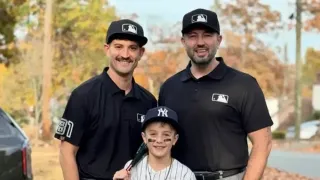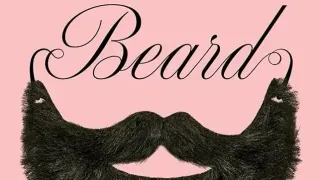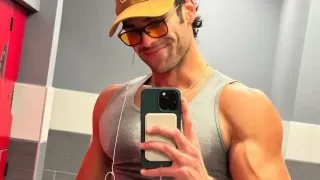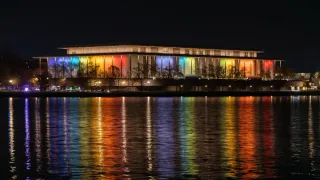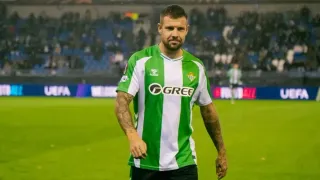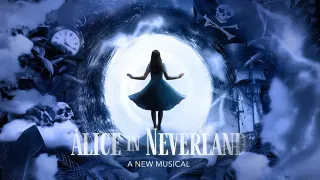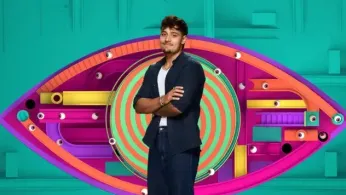
Nov 1
Big Brother’s Zelah: Real Talk, Real Transition – Why His Journey Resonates Loudly in the Queer Community
READ TIME: 3 MIN.
It’s day one in the Big Brother house—an environment known for its pressure-cooker social dynamics, awkward first-night introductions, and the occasional life-changing revelation. This season, Zelah, a trans man, is quietly rewriting the script for trans representation on one of the UK’s most-watched reality platforms. While many contestants might be strategizing alliances or worrying about how they’ll be perceived, Zelah is focused on something more radical: showing up as his authentic self and letting his story unfold on his own terms .
The real moment came in the bedroom, away from the spotlight’s glare, when Zelah confided in fellow housemate Sam. Their conversation quickly turned from casual chit-chat to the kind of heart-to-heart that queer folks recognize instantly—a space where identity isn’t just discussed but honored.
“I went from lesbian to man,” Zelah shared, succinctly capturing both the complexity and clarity of his journey . When Sam—who uses he, she, or they pronouns—asked if Zelah always knew, the answer was refreshingly direct: “When I was six years old… if you looked at me then and look at me now, you’d think I went from A to B, I looked like a little version of me now. I had the skin fade and everything.”
Zelah’s recollection is both moving and familiar to many trans viewers—a sense of self that’s always been there, only waiting for the world to catch up. And yet, as Zelah recounts, the journey wasn’t without its rough patches. “I was still bullied for being a man in school. Like there’s always something…” The sting of being seen as ‘different’—even when you’re just being yourself—is a universal queer experience, one that Zelah doesn’t sugarcoat .
Zelah’s story doesn’t end at identity—it’s also about *how* he grew into himself. “I realised I was queer around 15, things started to get better because I started to be a bit more masculine, went through my toxic masculinity phase, got a motorbike and my tattoos…” It’s a playful nod to the sometimes messy, often joyful process of figuring out who you are and how you want to be seen. Tattoos and motorbikes may be cliché markers of masculinity, but for Zelah, they were tools of self-expression and survival .
For queer audiences, Zelah’s honesty about “toxic masculinity” isn’t just self-aware—it’s a reminder that the journey to healthy selfhood can involve detours and learning curves. It’s also a call for nuance: masculine identity, especially for trans men, isn’t one-size-fits-all.
Perhaps the most relatable part of Zelah’s Big Brother experience is his decision to *not* lead with his gender identity. On launch night, he told producers, “Naturally that conversation will come up, because if you ask me about my school experience, I went to an all-girls school. If people ask me more about the personal training business that I’m trying to build, it’s centred towards trans people and women. It will naturally come up, but for now I’m making a conscious decision to not bring it up for a bit, let people make their first impressions of me outside of my gender identity” .
This approach resonates with a growing movement in the LGBTQ+ community: the right to be seen as a whole person, not just a single identity marker. For many trans people, visibility is a double-edged sword—a lifeline for those seeking representation, but also an invitation for scrutiny. Zelah’s choice to let relationships and conversations develop before disclosing his trans status models a kind of agency that is both empowering and deeply relatable.
Reality TV can be a minefield of stereotypes and editing tricks, but Zelah’s presence—and his willingness to share his story—brings a rare authenticity. His narrative isn’t just about struggle; it’s about *joy*, growth, and the pleasure of being recognized for who you are. The fact that Zelah is building a personal training business aimed at trans people and women shows how lived experience can fuel community care and entrepreneurship .
For queer viewers, especially trans men, seeing Zelah on national TV isn’t just representation—it’s a celebration. Social media reactions (see YouTube: #bbuk) have been overwhelmingly supportive, with fans praising Zelah’s candor and the way he’s handling tough conversations with humor and grace .
In a year when trans rights are under intense public debate and visibility can feel both exhilarating and exhausting, Zelah’s story is a balm. It’s a reminder that trans life isn’t just headlines and statistics—it’s everyday moments, friendships, tattoos, and yes, even the occasional motorbike.
For LGBTQ+ audiences, especially those navigating their own journeys, Zelah’s openness is more than just good TV. It’s a call to embrace complexity, to laugh at the messiness, and to remember that queer joy is as revolutionary as queer protest.
Big Brother airs Sunday to Friday at 9pm on ITV2 and ITVX .
